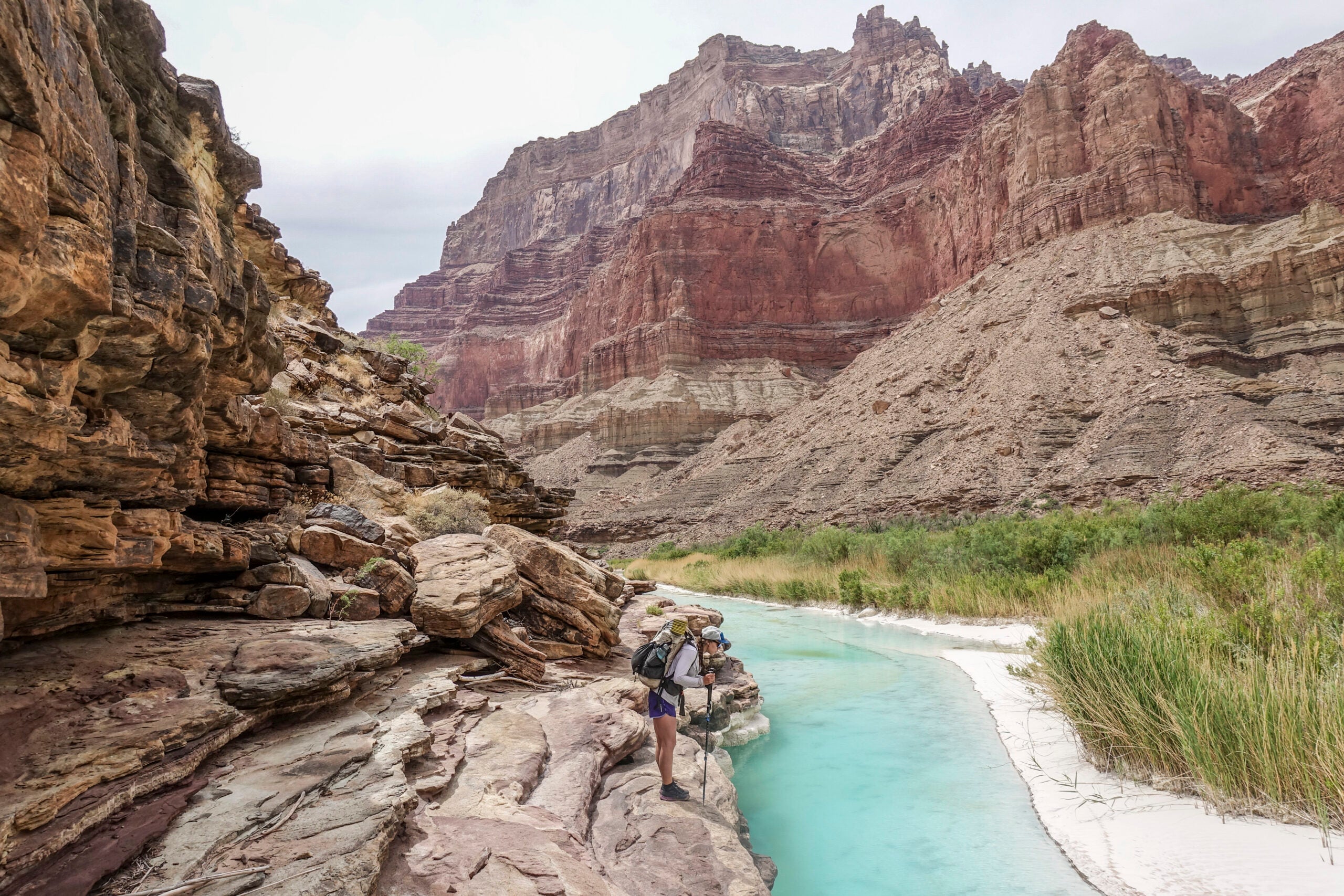Conservationists Intervene in Ludicrous Effort to Dam the Little Colorado River Half a Mile from the Grand Canyon
Arizona company thinks flooding one of the most stunning landscapes in America is a good idea
Contact
Today a coalition of conservation organizations sought intervention and opposed preliminary permits for a series of new dams and reservoirs on the Little Colorado River just a few thousand feet from the Grand Canyon. Earthjustice is representing Save the Colorado, the Grand Canyon Trust, the Sierra Club, Living Rivers, Waterkeeper Alliance, and WildEarth Guardians in the proceeding before the Federal Energy Regulatory Commission (FERC).
“Flooding one of the most stunning landscapes in America for a speculative profit makes no sense, whichever way you look at it,” said Michael Hiatt, staff attorney in Earthjustice’s Rocky Mountains office. “When a company proposes a project that would harm the Grand Canyon, the conservation community and the American people do not sit idly by. If Pumped Hydro Storage moves forward with these dams, it will face a coalition of voices who have defended the Grand Canyon for decades.”
In total, Pumped Hydro Storage, LLC has proposed four new dams and reservoirs on the Little Colorado River. These dams and reservoirs would change the timing and flows of the Little Colorado River just before it reaches the Colorado River, which carved the iconic red rock switchbacks of the Grand Canyon over millennia. The dams would lower the temperature of the Little Colorado River, and eliminate its famed milky turquoise waters prized by rafters. The dam proposal faces significant legal hurdles, as it would destroy the primary spawning grounds for the humpback chub, an endangered fish protected by the Endangered Species Act.
“The warm waters of the Little Colorado River are vital to ensure the survival of the largest population of humpback chub remaining in the Colorado River,” said Jen Pelz, the wild rivers program director at WildEarth Guardians. “These dams are not welcome in one of the last truly living rivers in the Basin.”
“It is difficult to overstate what a truly bad idea this is,” said Sandy Bahr, chapter director for Sierra Club’s Grand Canyon Chapter. “It is as if they looked at a map of Arizona and said ‘where is the worst possible place to put these dams — a place where they would flood cultural sites, destroy habitat for the endangered humpback chub, and transform the Little Colorado waters?’ This proposal must be stopped.”
The proposed dams would significantly alter the environment within Grand Canyon National Park by changing the flows, sediment, and temperature of the Colorado River. The Grand Canyon is a natural treasure that belongs to the American public, and it’s an economic engine to boot. The National Park Service reports that in 2018, the Grand Canyon drew 6.2 million visitors who spent $667 million in communities near the park. That spending supported 9,423 jobs in the local area and had a cumulative benefit to the local economy of $938 million.
“Proposing to dam the Grand Canyon’s largest tributary ignores the lessons learned from the downstream damage caused when the gates of Glen Canyon Dam closed more than a half-century ago,” said Roger Clark, Grand Canyon Program director for the Grand Canyon Trust. “The humpback chub is endangered because of that dam, and this project would push the rare fish closer to extinction. The federal government has long recognized the Little Colorado River Gorge as a place of cultural significance, home to the Grand Canyon’s Native peoples. The Federal Energy Regulatory Commission must consult all affected tribes.”
Pumped Hydro Storage, LLC formed in 2019. Within two months of its creation the company proposed five hydropower projects in the state of Arizona, lending a highly speculative light to its proposals. Proposals before the Federal Energy Regulatory Commission must pass a basic “fitness” test to determine whether a proposal deserves the time and resources of the agency. Conservation groups are asking regulators at FERC to deny Pumped Hydro Storage’s preliminary permit to explore damming the Little Colorado River on the grounds that it fails this basic “fitness” requirement, and because of the potential legal challenges on Endangered Species Act grounds and opposition from Native American Tribes.
“This proposal to destroy the incredible Little Colorado River canyon to construct hydropower dams and reservoirs just steps from Grand Canyon National Park is a nonstarter,” said Daniel E. Estrin, Waterkeeper Alliance’s General Counsel and Advocacy Director. “In addition to adverse impacts to endangered species and cultural resources, dams and reservoirs cause enormous evaporative losses to river systems — losses the Colorado River basin, the water supply for 40 million people, can ill afford as our climate heats up. Protecting our waterways and communities requires that we remove dams from the basin, not build more of them.”
“Damming and drowning beautiful, sacred canyons to generate overpriced electricity is one of the most ridiculous project proposals we’ve fought in the last decade,” said Gary Wockner of Save The Colorado, whose organization fights proposed dams across the Colorado River basin. “Where they want to build a wall of cement, they will instead see a wall of opposition.”
Members of the public can write to FERC to oppose Pumped Hydro Storage’s proposal to dam the Little Colorado River until the public comment period closes on November 18, 2019.
Find maps of the proposed dams. (please credit Stephanie Smith, Grand Canyon Trust.)

Additional Resources
About Earthjustice
Earthjustice is the premier nonprofit environmental law organization. We wield the power of law and the strength of partnership to protect people's health, to preserve magnificent places and wildlife, to advance clean energy, and to combat climate change. We are here because the earth needs a good lawyer.